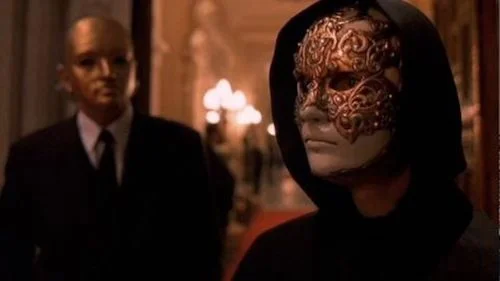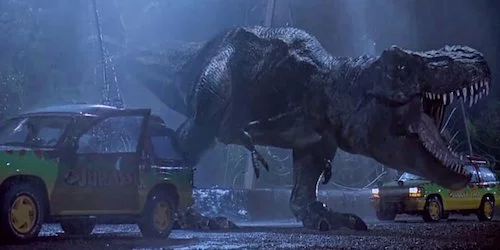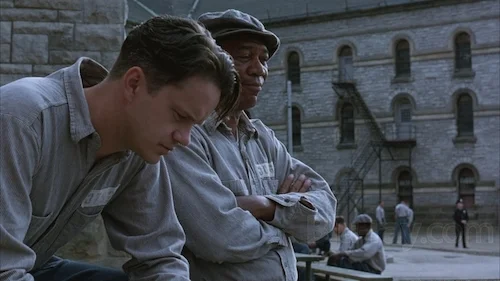Ettore Di Gennaro: Making Short Films to Create Longevity.
Ettore Di Gennaro approached this interview the same way he approaches cinema: through precise means. Di Gennaro has made short films for around twenty five years in his native Naples, Italy. To him, filmmaking is an escape. For his audiences, his own filmmaking is a message. His dream has been alive since he graduated from The Accademia di Belle Arti di Napoli. Devoting his time to his nonprofit company 3dproduction Cultural Association (founded in 2009), Di Gennaro has persisted his passion for visual storytelling in his time off (from digital media, web design, and more). Luckily, he found some spare time to share his own personal story with us. Di Gennaro allowed us to get a sense as to how competitive the independent filmmaking scene in Italy truly is, as well as his own triumphs in the field.
Films Fatale: Why do you specialize with short films? Is it a preference?
Ettore Di Gennaro: I chose shorts, because I’m not a professional. I’m an amateur, and the only way for me to produce something, is if the work is short and rich of content. It’s not a preference, but a need.
FF: What can short films do that features cannot?
EDG: Like a wise man, a short film tells a lot with little. The art of extreme synthesis, and the ability to make a virtue of necessity by raising the poverty of productive means to the maximum possible expression. Even filming with a mobile phone is allowed, if you have a good idea of how to film. Many [filmmakers] focus on the camera, but it is only a means, not the purpose. For these reasons, you can tell only intimate stories, without fewer actors, fewer locations and little time.
FF: What is filmmaking like in Italy? What can you say about the industry that the world may not be familiar with?
EDG: The hardest. I apologize if I say sad words about the situation in Italy, but here, everything is blocked and moves only through the knowledge of “this” or “that”. It is the parable of the emperor's new dress, where few [people] hold the levers of power; the others (for flattery), always say “yes” and agree. No newspaper interviews me if I don't have someone to introduce me to them. Only a few festivals, and very few realities give me the space and the way to tell my stories and myself. Abroad —especially in the USA or Canada — I always find an opportunity. I am never prejudiced, because I am nobody and I do not have a curriculum full of awards
FF: Do you find influence in your homeland, or do you search elsewhere?
EDG: For the reasons above, I’m looking for the movies that come from the US/Canada. A big school of storytelling I discovered recently, for me, are the independent movies on Netflix. I’m honest. I appreciate their courage, and their independence. They are free, and the box-office doesn’t matter.
FF: What words of wisdom do you have for new filmmakers? What about those that have been trying to make it for a long time?
EDG: If you believe in a dream, work hard every day. If you don't try it, you will surely have failed. If you try, maybe you won't change the way to make movies, but you will change yourself. You are what you feel to be, not what the other says about you and your work. Love your work firstly, and listen to the judgments of the audience secondly.
FF: Which of your works are you most proud of and why?
EDG: I’m really proud of two works.
The first is OlLTRE – Beyond (2017): the story of a man and the appalling routines of his imprisonment [that happen] without hope. Yet a way out, and help, are still possible! Shot in a real [abandoned] prison, the story is a metaphor of depression.
The second is NOIR TALES (2018) : a story with a four-year-long production, shot in chromakey like Sin City. This story was set in a metropolis, a sinister stage contested by different characters ... between those who bask in its darkness, and those who desperately try to bring it light of justice and redemption. Five actors, three different cities (from Paris, France, to Naples, Italy), and a lot of after effects work on it. It’s a dedication to the noir movie genre.
FF: What projects are next for you?
EDG: I’m going to shoot a webseries [titled] DEAD STAR DUST (Polvere di stelle morte), about five men [that are] trapped in a military base, and are surrounded by humans [that are] vampiric from a science fiction point of view. I decided to [direct] only five episodes to test audience [reactions].
Another project is SWITCHIN’ WAYS, an interactive story like Netflix’s Bandersnatch, where you choose the story you want to watch.
FF: We like to send interviews off with the most basic question, based on why we are all cinephiles. What are your top five films of all time, and why?
Eyes Wide Shut
EDG: For the style, the light, the rhythm, the direction, the meaning and the poetry.
Indiana Jones and the Temple of Doom
EDG: For the entertainment, funny action, and the storytelling that aims to capture and to surprise [you].
Jurassic Park
EDG: For the special effects, and the sense of astounding [audiences].
The Goonies
EDG: For the [keys] to friendship, the innocence and for its humour.
The Shawshank Redemption
EDG: For the story with its big, explosive and amazing twists in the plot.
We thank Ettore Di Gennaro for his time. Be sure to check out the productions featured on the official 3dproduction vimeo channel.
Andreas Babiolakis has a Masters degree in Film and Photography Preservation and Collections management from Ryerson University, as well as a Bachelors degree in Cinema Studies from York University. His favourite times of year are the Criterion Collection flash sales and the annual Toronto International Film Festival.








